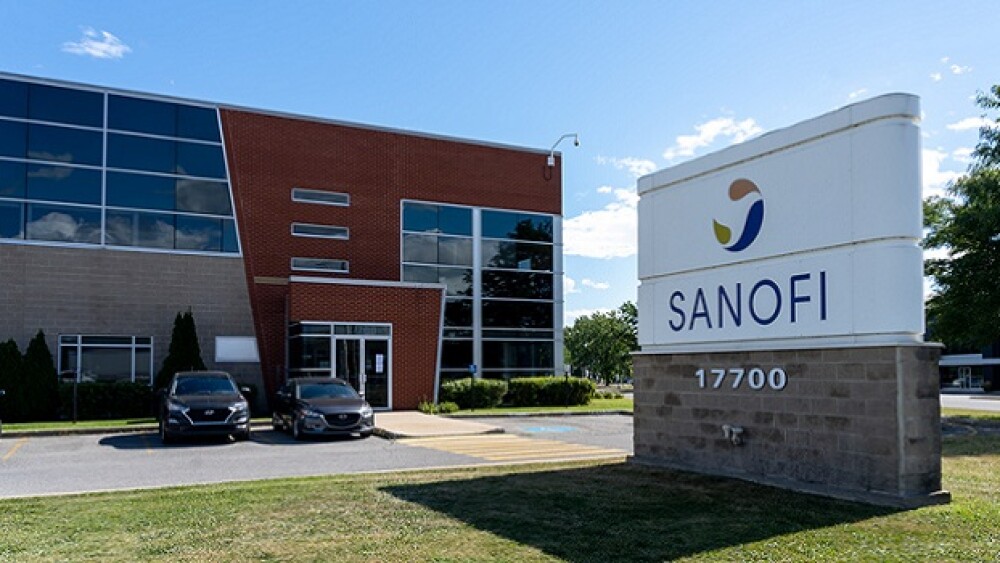The French drugmaker Thursday touted trial results in The New England Journal of Medicine showing frexalimab significantly slowed disease activity in people with relapsing multiple sclerosis.
Pictured: Sanofi distribution center in Kirkland, Quebec/iStock, JHVEPhoto
Sanofi nabbed a mid-stage victory on Thursday for its anti-CD40L antibody in multiple sclerosis with the publication of Phase II data in the The New England Journal of Medicine, demonstrating that the company’s frexalimab significantly slowed disease activity in people with relapsing MS.
In December 2023, Sanofi named frexalimab as one of three “pipeline-in-a-product” assets that could generate peak annual sales of 5 billion euros ($5.4 billion) or more. The inclusion of frexalimab in that small group of promising pipeline prospects reflects the Phase II data that Sanofi first reported in a topline statement in May 2023.
Thursday’s NEJM paper provides a complete analysis of the Phase II results. Investigators randomized 129 people with relapsing multiple sclerosis to receive placebo or frexalimab, either intravenously or subcutaneously. The primary endpoint looked at the effect of the antibody on gadolinium-enhancing T1-lesions, a measure of active inflammation.
At week 12, the adjusted mean number of new gadolinium-enhancing T1-weighted lesions was 0.2 in the intravenous arm and 0.3 in the subcutaneous cohort, compared with 1.4 in the pooled placebo group. The result was statistically significant, causing the study to hit its primary endpoint.
Sanofi also linked frexalimab to reductions in another type of lesion. Counts of both types of lesions remained low in patients who continued to take frexalimab through week 24 and appeared to fall in people who switched from placebo to the antibody after week 12. Sanofi saw no “meaningful difference” on MSIS-29, a measure of the impact of MS on patients, but that endpoint was exploratory.
The French drugmaker has already begun Phase III trials that will provide a clearer look at the impact of the candidate on clinical outcomes. Investigators began enrolling 1,400 people with relapsing MS in one trial in December 2023. That study will assess the effect of frexalimab on the annualized relapse rate and is scheduled to finish in 2027. A second Phase III trial recently began enrolling nonrelapsing secondary progressive MS patients.
The Phase III readouts will be critical to Sanofi’s attempts to turn frexalimab into a blockbuster. Sanofi licensed the antibody from ImmuNext in 2017 while it was still in preclinical development and began working to show the asset can fulfill the potential of CD40. Biogen and Idec independently pursued the mechanism before their $6.8 billion merger in 2003, but both companies stopped after patients developed blood clots.
No participant had a thromboembolic event in Sanofi’s Phase II trial. The readout raised hopes at Sanofi, with CEO Paul Hudson telling investors at the company’s R&D Day in December 2023 that “frexalimab will walk into a marketplace that is absolutely tuned to perfection to receive it.”
Nick Paul Taylor is a freelance pharmaceutical and biotech writer based in London. He can be reached on LinkedIn.






